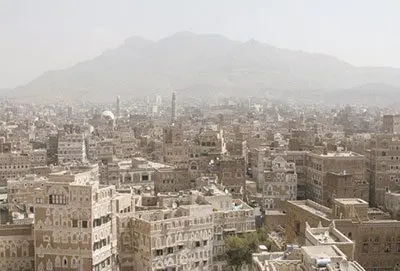
In 1985, the late publisher of the Lebanese daily Annahar wrote a book titled “A War of Others.” The book’s premise was that the then-ongoing Lebanese civil war was a proxy conflict fought by regional and international powers through Lebanese factions and militias.
Today, we are witnessing multiple wars of others unfolding throughout the Arab World. From Libya to Syria to Yemen, foreign states are settling scores on Arab soil.
Yemen, the cradle of Arab civilization, dramatically mirrors the misery and fragmentation of Arab people. Southern separatists want to create their own state. Al-Qaeda-linked extremists are fighting a vicious insurgency against the central government. Shi’a Houthi rebels have taken over the capital, Sanaa. The embattled government is struggling to maintain order and uphold its legitimacy. Everybody is fighting everybody and the turmoil has left too many Yemenis in despair and poverty.
The current bleak picture would have been unimaginable three years ago, when millions marched in pro-democracy protests to overthrow former President Ali Abdullah Saleh.
U.S. drones strikes and blatant Saudi and Iranian interventions in Yemen demonstrate that Yemenis are turning their guns against each other to fight a war of others. Yemen is becoming a field for another Saudi-Iranian confrontation, a ground for another violent sectarian, tribal battle that is dashing the masses’ dreams of liberty and prosperity.
Foreign interventions are invited by extremist forces of nullification. The only alternative is dialogue and coexistence. Yemeni factions should put their guns aside and come together to resolve their disagreements and address their grievances peacefully.
Western media outlet often refer to Yemen as the next door neighbor of Saudi Arabia, the world’s largest oil producer. Imperialists have always looked at weaker states through a lens of greed to exploit their resources. But there is more to Yemen than its neighboring oil fields. It is the land of the Marib Dam and innovation, where the first skyscrapers were built. It is a place of honor and generosity. It should not fall into the abyss of absurd civil war, whose consequences could destroy the country’s infrastructure and perpetually scare its social makeup.
Yemenis should not allow themselves to become tools of confrontations for other states. Dialogue is the only solution.






Leave a Reply